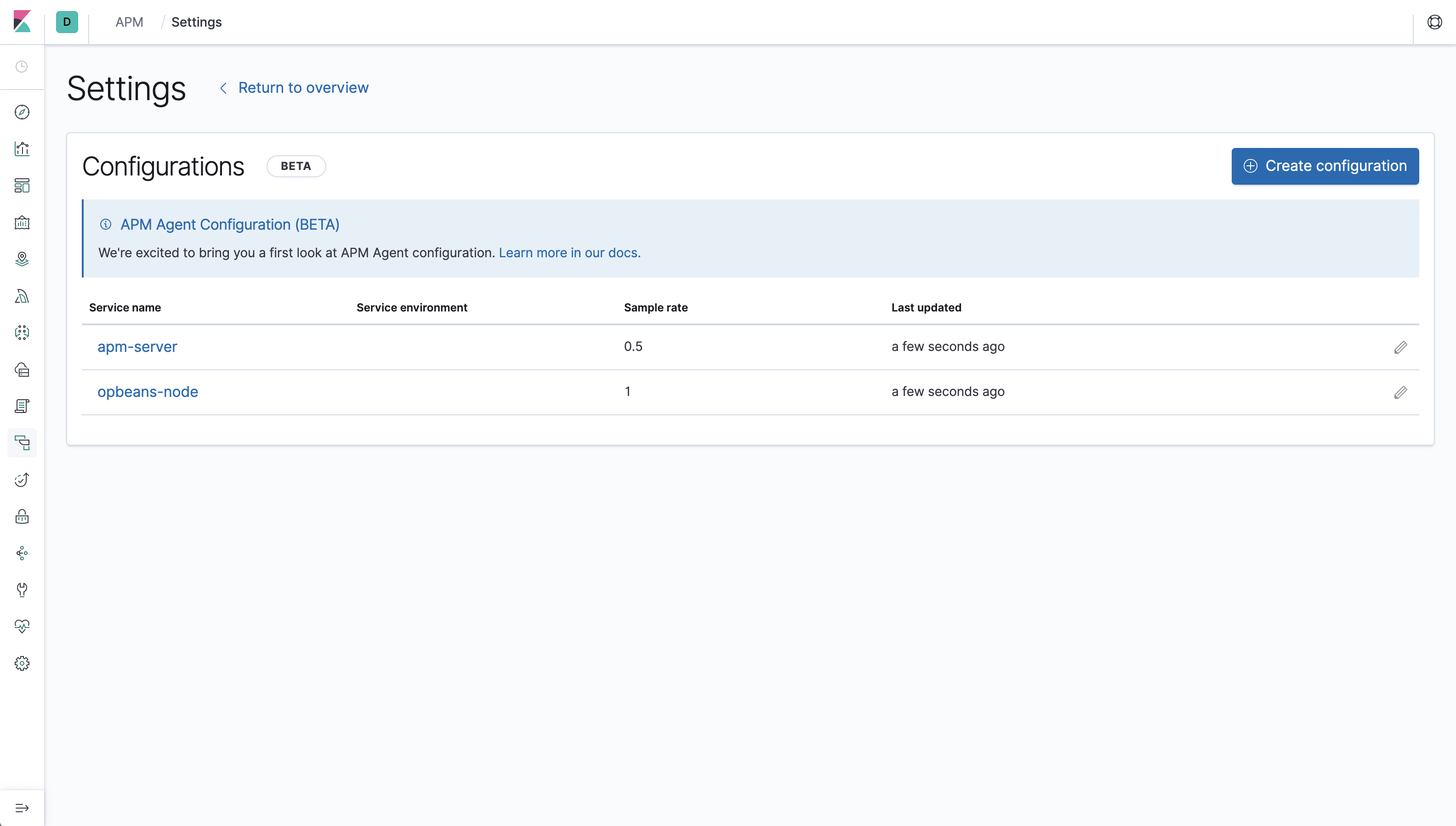APM Agent configuration
editAPM Agent configuration
edit[beta] This functionality is in beta and is subject to change. The design and code is less mature than official GA features and is being provided as-is with no warranties. Beta features are not subject to the support SLA of official GA features. APM Agent configuration allows you to fine-tune your agent configuration directly in Kibana. Best of all, changes are automatically propagated to your APM agents so there’s no need to redeploy.
To get started, simply choose the service and environment you wish to configure.

As this feature is in Beta, a limited number of configuration settings are supported. We recommend you watch your agent logs to confirm that configuration has been applied. If you have feedback, please reach out in our Discuss forum.
Precedence
editConfigurations set with APM Agent configuration take precedence over configurations set locally in the Agent. However, if APM Server is slow to respond, is offline, reports an error, etc., APM agents will use local defaults until they’re able to update the configuration. For this reason, it is still important to set custom default configurations locally in each of your agents.
APM Server setup
editThis feature requires Kibana endpoint configuration in APM Server.
Why is additional configuration needed in APM Server? That’s because APM Server acts as a proxy between the agents and Kibana. Kibana communicates any changed settings to APM Server so that your agents only need to poll APM Server to determine which settings have changed.
Supported configurations
editTRANSACTION_SAMPLE_RATE
edit
[7.3.0]
Added in 7.3.0.
A sample rate between 0.000 and 1.0. Default configuration is 1.0 (100% of traces).
Adjusting the sampling rate controls what percent of requests are traced.
1.0 means all requests are traced. If you set the TRANSACTION_SAMPLE_RATE to a value below 1.0,
the agent will randomly sample only a subset of transactions.
Unsampled transactions only record the name of the transaction, the overall transaction time, and the result.
In a distributed trace, the sampling decision is propagated by the initializing Agent. This means if you’re using multiple agents, only the originating service’s sampling rate will be used. Be sure to set sensible defaults in all of your agents, especially the JavaScript RUM Agent.